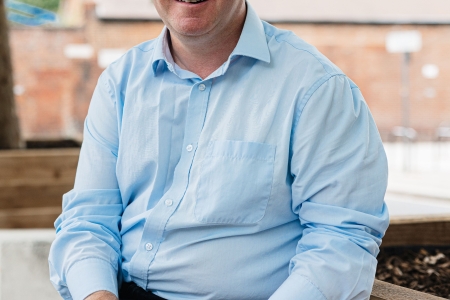

Portsmouth experts will work on a new Earth observation mission to help Singapore manage climate change
8 August 2023
6 min read
The UK’s largest regional space cluster, Space South Central, has won funding from the UK Space Agency’s International Bilateral Fund (IBF) to develop a new Earth observation mission to help Singapore manage climate change.
The project aims to develop new technology to monitor air pollution and atmospheric weather forecasting, to improve climate change measurement and inform disaster response in Singapore, although the findings will also benefit wider regions.
Space South Central experts from its partner universities of Portsmouth, Southampton and Surrey will work with counterparts in Singapore to develop critical instrumentation to obtain data vital to understanding the challenges and impact of climate change.
University of Portsmouth Professor of Cosmology, David Bacon, said: "It's a privilege to be a member of this project; I'll be working with colleagues in Singapore and Space South Central to make a difference to air pollution and to improve weather forecasting. The University’s Institute of Cosmology and Gravitation has great expertise in data analytics for the Universe, which we'll put to good use on Earth in this project."
Global climate change is a national priority for Singapore, which is often impacted by high levels of air pollution, particularly when wildfires in neighbouring countries cause haze. The growing population and economy are increasing water demand and putting pressure on the water supply, which is vulnerable to climate change.
The IBF funding of nearly £75,000 will be used to develop a very-low-earth-orbit constellation to monitor areas including air pollution and weather forecasting, using state-of-the-art electronic propulsion, onboard AI processing, miniaturised timing mechanisms and quantum technology-enabled sensors.
The project reflects the region’s growing relationship with space-related organisations in Singapore, following two Space South Central international delegations to the country earlier this year, comprising academics from all three of the cluster’s partner universities.

It's a privilege to be a member of this project; I'll be working with colleagues in Singapore and Space South Central to make a difference to air pollution and to improve weather forecasting. The University’s Institute of Cosmology and Gravitation has great expertise in data analytics for the Universe, which we'll put to good use on Earth in this project.
David Bacon, Professor of Cosmology
The University of Surrey is leading the project, alongside academics from the universities of Southampton and Portsmouth and company Twinparadox Ltd, working with Singapore’s Office for Space Technology & Industry (OSTIn), Singapore’s Agency for Science Technology and Research (A*Star), the National University of Singapore and the Nanyang Technological University.
The University of Surrey’s Dr William Lovegrove, who leads on international liaison for Space South Central, said: “We are thrilled to have been awarded this project by the UK Space Agency and are excited at the prospect of further deeper collaboration with our partners in Singapore.
“This project, developing critical instrumentation for climate change monitoring, encompasses so much of the newly-announced National Space Strategy by unlocking growth through international collaboration.
“We would like to express our gratitude to our Singaporean project partners for their commitment to this endeavour. By combining our expertise and resources, we anticipate creating a new scientific satellite mission that not only addresses global challenges but also fosters stronger ties between our nations in the context of this significant trade agreement.”
Dr Chris Bridges, Principal Investigator for the project from Surrey Space Centre at the University of Surrey, said: “The cluster team has been working closely with experts in Singapore to understand what’s needed to help the island country cope with climate change.
“The cutting-edge and disruptive technologies emerging from the Universities of Surrey, Portsmouth and Southampton are combining to solve problems.”
Dr Paul Bate, Chief Executive of the UK Space Agency, said: “Working with other space agencies and organisations across the globe through our International Bilateral Fund allows us to draw on skills that enhance our homegrown expertise and capabilities, drive up investment in the UK, and support world-class science and discovery.
“This project with Singapore to advance sustainability and scientific sensors highlights the many ways in which we can collaborate with the global space community to help humanity push the boundaries of space innovation and unlock commercial opportunities that will benefit our economy now and in the future.”
